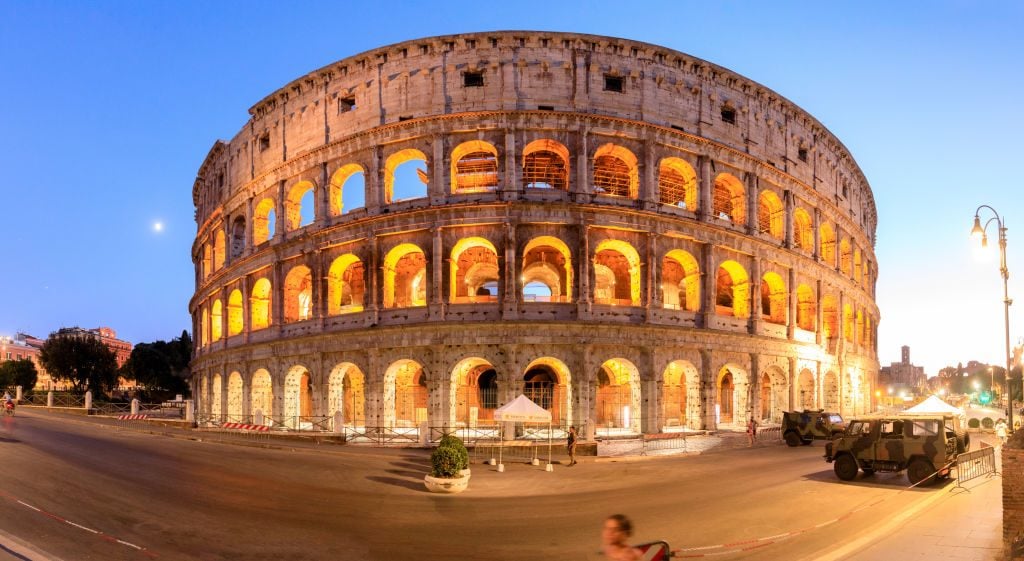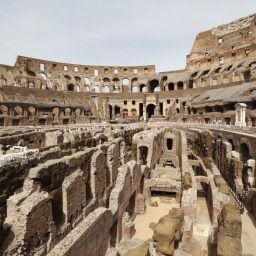In a few years from now, visitors to Rome’s most famous ancient landmark will be able to stand on the floor of the Colosseum, taking in the same view that gladiators would have had while engaging in armed combat.
Italy’s culture minister, Dario Franceschini, has unveiled the winning design from the competition to reconstruct the arena floor. Milan Ingegneria, an engineering consulting company, led the team that devised the winning proposal for a retractable 32,300-square-foot floor. The project will cost €15 million ($18 million), according to the New York Times.
“You will be able to walk on it and go to the center of the Colosseum, seeing it in the same way as visitors used to up to the end of the 19th century,” Franceschini told Reuters.
The new floor will feature a lattice of wooden slats that rotate to reveal the chambers below, and will be made of sustainable Accoya wood, a chemically treated pine lumber.
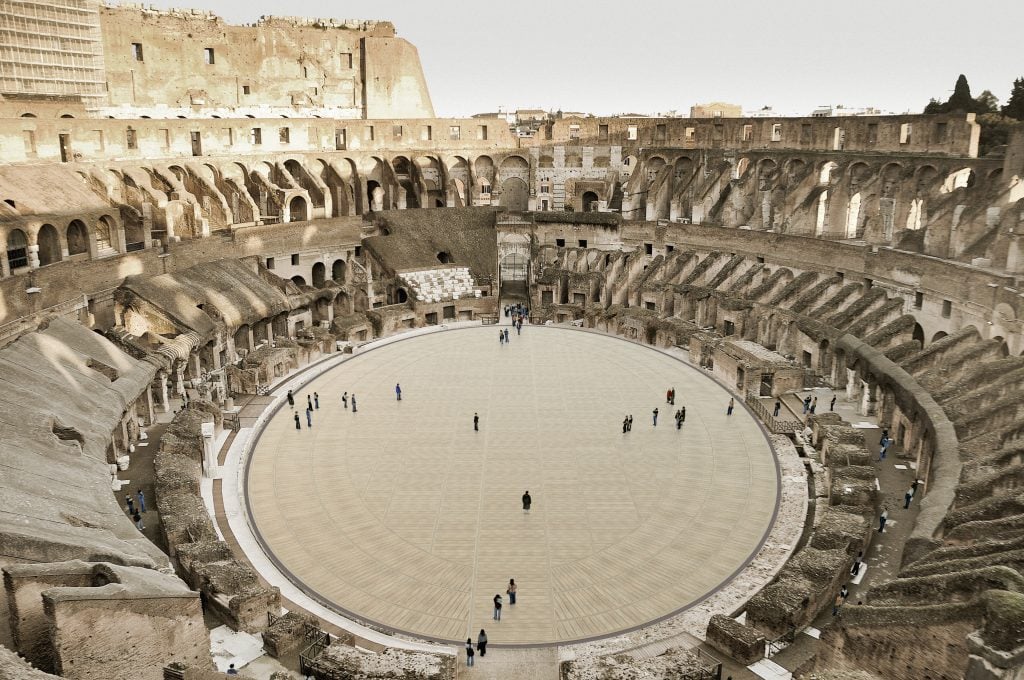
Milan Ingegneria has designed a recreation of the Colosseum floor, seen here in a rendering. Image courtesy of the Italian Culture Ministry.
“The new structure will be completely reversible,” Massimiliano Milan, chief executive officer at Milan Ingegneria, told CNN. “In 30, 50, or 100 years it will be possible to restore the monument as it is now.”
A small segment of flooring above the hypogeum, the underground network of tunnels beneath the amphitheater where animals and human combatants waited to enter the arena, has been in place since 2000.
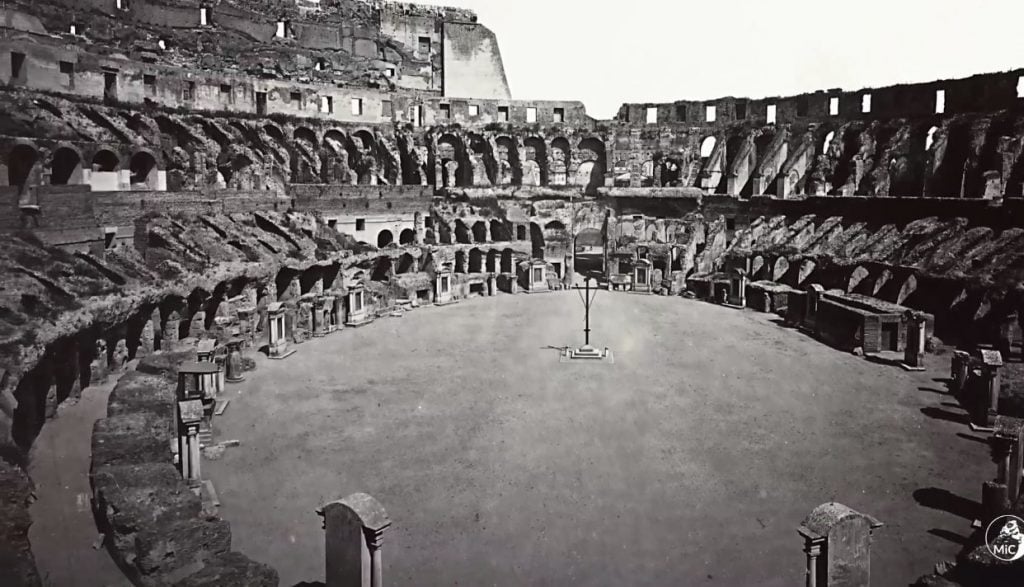
The Colosseum in Rome before excavations of the hypogeum (the underground chambers beneath the arena), in about 1870. Photo courtesy of the Italian Culture Ministry.
The current plans to cover the entire floor have been in development since 2014, when archaeologist Daniele Manacorda first proposed the idea in an article in the journal Archeo.
Franceschini was immediately intrigued, tweeting in response that “all that is needed is a bit of courage” to bring such a vision to life. Within a year, financing for the project had been green-lit as part of the nation’s Grandi Progetti Beni Culturali, or Major Cultural Patrimony Projects, initiative.
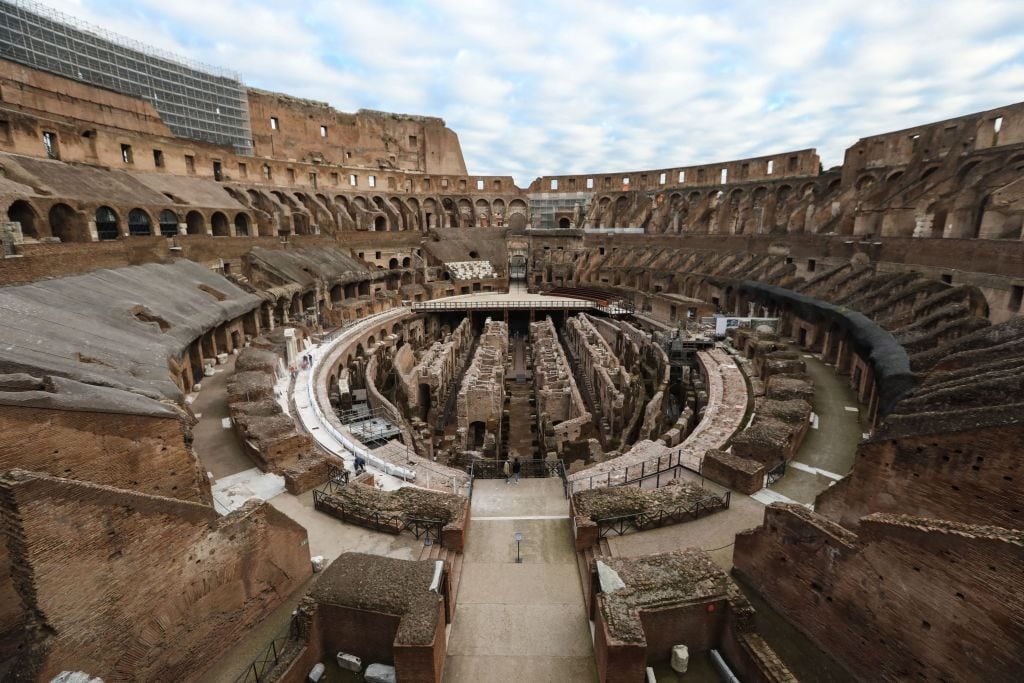
The Colosseum in Rome, Italy. Photo by Cheng Tingting/Xinhua via Getty Images.
“It’s another step forward toward rebuilding the arena, an ambitious project that will aid the conservation of the archaeological structures while getting back to the original image of the Colosseum,” Franceschini said in a statement.
The project is expected to be completed by 2023, and could be used to hold events for spectators, including reenactments of the gladiator battles. (The current flooring section was inaugurated with a performance of the Sophocles tragedy Oedipus Rex.)
Prior to the pandemic, the Colosseum was one of the world’s most popular tourist destinations, attracting 7.6 million visitors in 2019. The site reopened last week after another health-related closure, this time of 40 days, and is welcoming 1,260 people a day—down from a high of 25,000.
The Colosseum underwent a €25 million ($34 million) refurbishment in 2014.
